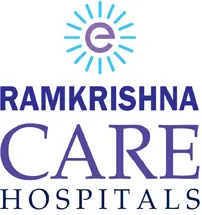MRI Scan in Raipur
Magnetic resonance imaging (MRI) of the body, including MRI Scan in Raipur, uses a powerful magnetic field, radio waves, and a computer to produce detailed pictures of the inside of your body. It may be used to help diagnose or monitor treatment for a variety of conditions within the chest, abdomen, and pelvis. If you’re pregnant, body MRI may be used to safely monitor your baby.
Tell your doctor about any health problems, recent surgeries or allergies and whether there’s a possibility you are pregnant. The magnetic field is not harmful, but it may cause some medical devices to malfunction. Most orthopedic implants pose no risk, but you should always tell the technologist if you have any devices or metal in your body. Guidelines about eating and drinking before your exam vary between facilities. Unless you are told otherwise, take your regular medications as usual. Leave jewelry at home and wear loose, comfortable clothing. You may be asked to wear a gown. If you have claustrophobia or anxiety, you may want to ask your doctor for a mild sedative prior to the exam.
MR imaging of the body is performed to evaluate,
- organs of the chest and abdomen—including the heart, liver, biliary tract, kidneys, spleen, bowel, pancreas, and adrenal glands.
- pelvic organs including the bladder and the reproductive organs such as the uterus and ovaries in females and the prostate gland in males.
- blood vessels (including MR Angiography).
- lymph nodes.
Physicians use an MR examination to help diagnose or monitor treatment for conditions such as,
- tumors of the chest, abdomen or pelvis.
- diseases of the liver, such as cirrhosis, and abnormalities of the bile ducts and pancreas.
- inflammatory bowel disease such as Crohn’s disease and ulcerative colitis.
- heart problems, such as congenital heart disease.
- malformations of the blood vessels and inflammation of the vessels (vasculitis).
- a fetus in the womb of a pregnant woman.
Benefits
- MRI is a noninvasive imaging technique that does not involve exposure to ionizing radiation.
- MR images of the soft-tissue structures of the body—such as the heart, liver and many other organs— is more likely in some instances to identify and accurately characterize diseases than other imaging methods. This detail makes MRI an invaluable tool in early diagnosis and evaluation of many focal lesions and tumors.
- MRI has proven valuable in diagnosing a broad range of conditions, including cancer, heart and vascular disease, and muscular and bone abnormalities.
- MRI enables the discovery of abnormalities that might be obscured by bone with other imaging methods.
- MRI allows physicians to assess the biliary system noninvasively and without contrast injection.
- The contrast material used in MRI exams is less likely to produce an allergic reaction than the iodine-based contrast materials used for conventional x-rays and CT scanning.
- MRI provides a noninvasive alternative to x-ray, angiography and CT for diagnosing problems of the heart and blood vessels.

